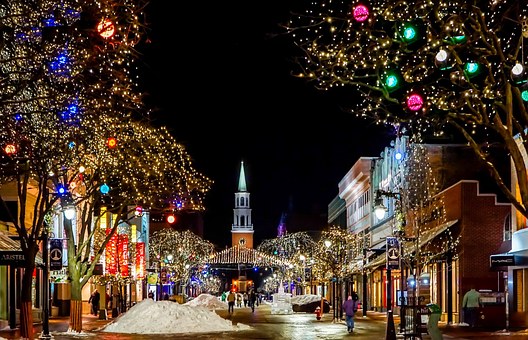
Yes, it’s almost that time of year again: the holidays. Reindeer, Santa, fruitcakes, stockings, visions of sugar plums dancing in our heads, and, of course, Christmas lights. Adding a sense of essence to a neighborhood house, Christmas lights are hung from chimneys, and roof eaves, with cheer. But, remember, danger soon could appear.
In order to keep your holidays merry, keep these Christmas light safety tips in mind:
Watch for Ice: Whether you are climbing on a roof or looking for a place to set your ladder, ice is your enemy. Sometimes it’s obvious, with a sidewalk or a rooftop being visibly slick, and sometimes it is black ice, ice you don’t really notice until it’s too late. Before you step anywhere or set a ladder down, be sure there is no ice in the vicinity. Check suspicious areas closely and lay down salt or sand when warranted. It’s better to be safe than falling.
Check lights and unravel them on ground level: After sitting in your basement or attic for nearly a year, Christmas lights probably aren’t in the best shape. Some lights are loose, some are burnt out, and some cords are tangled in a tight, but oddly well-done sailor’s knot. Don’t wait till you standing on top of a ladder to learning your lights need some work. Because getting them “roof top ready†can take some time, unravel and check them on the ground level.
Make sure they are approved for outdoor use: There are indoor lights, there are outdoor lights, and then there are the switch hitters: lights that do both. Before hanging lights up outside, make sure they are suitable for the outdoors (if they are, it will say on the box). It’s also important to make sure the lights were checked by a legitimate testing laboratory, such as UL. Look for seals of approval before you approve them for your house.
The Smaller the Better: There was a time when all holiday lights were made of big, robust bulbs. Nowadays, many lights are much smaller. Some people prefer smaller lights because they look better, allow more variety, and are easier to hang, but they are also safer. The larger lights have a tendency to get much hotter, increasing the chances for a fire or a singed Christmas tree. For this reason, use smaller lights. They tend to be on their best behavior.
Turn them off when you go to bed or leave: Christmas lights surely add something to your neighborhood: glowing from afar, they make the holidays luminous. Still, any kind of lights has the potential for danger. Even if you want to keep them on from Thanksgiving to Valentine’s Day, they need to be turned off when you aren’t around. If you leave, shut them down and when you go to bed, pull the plug. If you have a tendency to forget, get a timer that turns them off automatically. Don’t worry about turning off the Christmas lights and concentrate on your holiday shopping.
Posted in Home By
 Opanpan Door Skins
Opanpan Door Skins